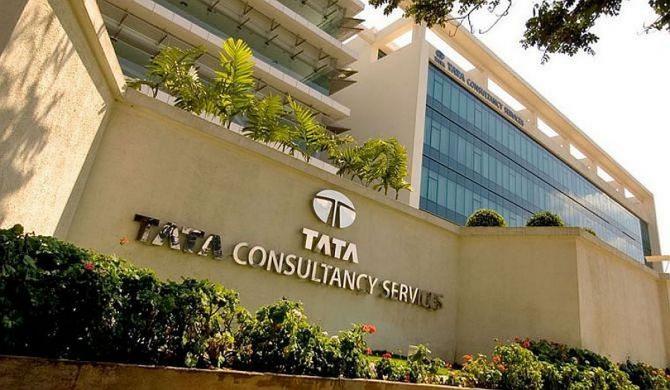An uncertain environment, increased client scrutiny, and fast-changing tech landscape are making large deals come under fire.
Shivani Shinde reports.

India’s largest IT services player Tata Consultancy Services (TCS) saw its $2 billion, 10-year deal with Transamerica Life Insurance Company come to an end even before the period was over.
Transamerica is the subsidiary of American arm of Dutch insurer Aegon NV.
This is not the first time such a long-term deal has been called off. Earlier this year, UK's National Employment Savings Trust (NEST), ended a $1.8-billion deal with French IT services player Atos.
The deal was signed for 18 years, but ended in just two years.
In the case of TCS, it still has 2-2.5 years to transition the processes back to Transamerica. TCS would work on the deal for eight years and would not impact it financially.
The deal was signed in 2018 and was to bring in $200 million annually for TCS. In an email response, TCS said: “Considering the current macro environment and respective business priorities, Transamerica and TCS have mutually agreed to end the administration arrangement for Transamerica life insurance, annuities, and supplemental health insurance and other employee benefit products.
"Transamerica and TCS will work together to ensure a smooth transition of the administration of these products to a new servicing model, which we expect to take approximately 30 months.”
An email sent to Transamerica remained unanswered.
Analysts tracking the sector agreed that such incidents are rare, where a mega deal gets cancelled before the contract period ends.
Indian IT players have been successfully extending such large deals for a few more years.
Experts feel that uncertainty and change in the business environment have led Transamerica to re-evaluate their decision.
“This raises the question if the current environment will bring some of the large deals to be scrutinised harder as the technology landscape is changing fast.
"So far, it was a theoretical risk but now it looks real,” said Pareekh Jain, CEO and lead analyst, Pareekh Jain Consultancy.
Jain also pointed out that mega deals get regularly revisited to see if they align with technology trends and changes in market.
“It can happen in mid-term in mega deals in other sectors and geographies.
"Other deals any way come for renewal after every few years.
"So, they are aligned with market and technology requirements periodically,” added Jain.
As part of the deal, TCS had also on-boarded 2,000 employees from Transamerica, which has now gone up to 3,500-4,000 both onshore and offshore.
“Most of them will get redeployed to other projects. BFSI (banking, financial services and insurance) is a big focus for TCS,” said a source aware of the development.
In the Atos-NEST deal, media reports in the UK said that 1,000 people would lose jobs in India and the UK.
The case of Transamerica hints towards the growing importance of global capacity centres (GCCs) or captive centres of multinationals, which are looking to in-source more.
Analysts said one of the reasons for more work coming to GCCs is that they offer a better cost proposition in the long term.
According to a recent report by EY, some of the reasons why GCCs are expanding their own headcount is because they want to establish centres of excellence in areas of AI, Cloud computing, data analytics, and cyber security.
EY also predicts that by 2030, India will have 2,400 GCCs and that number can potentially increase to 2,550.











 © 2025
© 2025